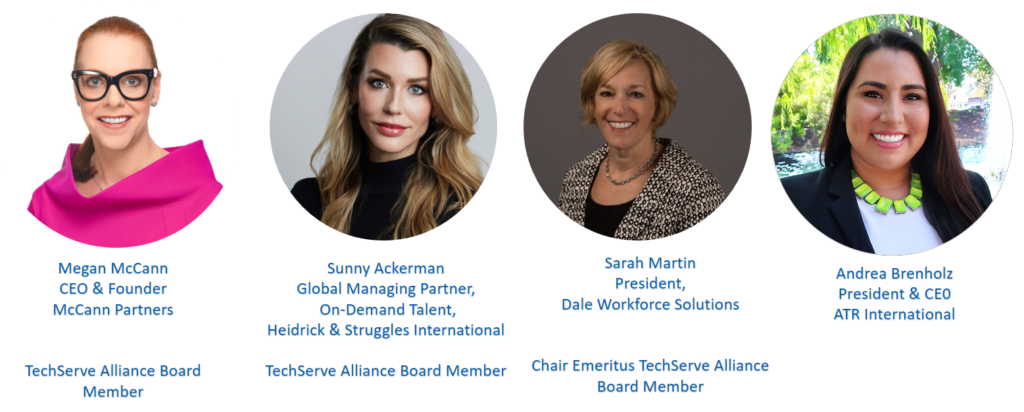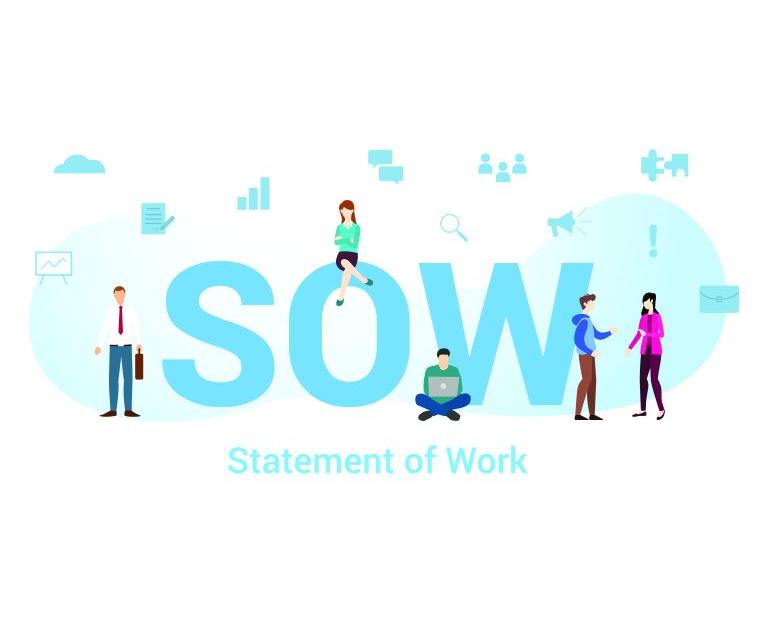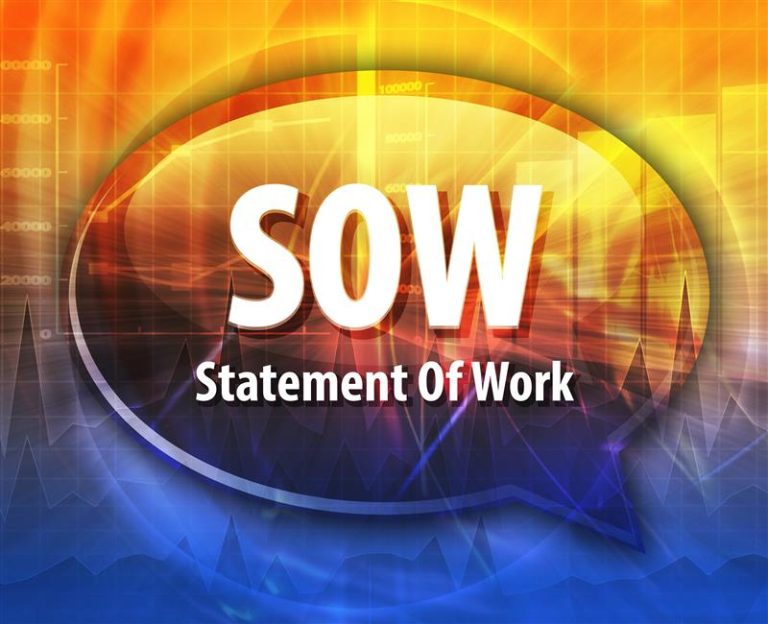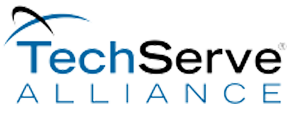In the staffing and recruiting sectors, celebrating Women’s History Month and International Women’s Day last month in March brings more than just a moment for applause; it opens a vital dialogue on gender equity’s current state and future. However, it’s important to note that while these designated months serve as catalysts for discussion and recognition, the celebration and empowerment of women in staffing should not be confined to a single month. Rather, it should be a year-round commitment, fostering an environment of inclusivity and support for women at all workforce levels.
A recent TechServe webinar with industry leaders Megan McCann, CEO and founder of McCann Partners, Sunny Ackerman, Global Managing Partner for Heidrick & Struggles, Sarah Martin, founder of Dale Workforce Solutions, and Andrea Brenholz, President and CEO of ATR International, was rich in reflection and action, spotlighting the achievements in promoting gender diversity while underscoring the substantial journey ahead towards true parity.

Unpacking the Complex Landscape
The industry stands at a crossroads, where the celebration of progress meets the sobering realities of persistent gender disparities. Key findings from the third annual WBC Benchmark Survey 2023 reveal a concerning stagnation in the representation of women, particularly women of color, in leadership roles.
“Women, especially women of color, are still being underrepresented in the staffing work stream, at the executive level, and on boards,” McCann notes. “Sarah, thank you for serving not only on the board [of TechServe Alliance] but as a chairwoman … we don’t have enough chairwomen out there. And certainly, that was part of my ‘why’ for joining the [TechServe Alliance] board.”
The survey also showed a sharp decline in CEO roles held by women, painting a stark picture of the barriers that remain. Some of the relevant key findings from the latest WBC Survey are:
- Women continue to be underrepresented in staffing with no improvement over the last four years.
- Diversity was cited as a low priority for firms in 2023.
- Women are far less optimistic about achieving gender & pay equity.
- Smaller companies tend to show more representation across the board.
- CEO roles held by women have dropped precipitously in large staffing firms from 51% to 21%.
- Executive team roles also experienced a significant drop across medium and small staffing roles from 63% to 38%.
Strategies for Empowerment and Tackling Systemic Barriers
Removing these barriers and promoting gender equity requires a multifaceted approach toward changing the narrative through mentorship and advocacy. Brenholz stresses the significance of supporting each other and advocating for one another to help overcome imposter syndrome, highlighting the collective effort required to address personal and systemic challenges.
The webinar also shed light on the broader systemic barriers that women face, including the effects of COVID-19 and entrenched workplace cultures. “COVID and now post-COVID …returning to work is impacting women,” Martin observes, pointing to the pandemic’s lingering effects on women’s professional lives. Compounding the situation, larger companies often see decisions made at the board level where diversity is lacking.
Addressing these challenges requires more than just recognition; it demands actionable solutions. The leaders discussed various strategies, including enhancing support systems, dismantling barriers like imposter syndrome, and promoting flexible work environments that do not compromise career advancement.
Cultivating Inclusive Cultures
Building inclusive cultures is identified as a cornerstone for advancing gender equity. This involves recognizing the need for diversity, equity, and inclusion (DEI) and integrating these principles into the organizational fabric. Martin challenges the industry to evaluate and address the advancement barriers women face, asking, “Why aren’t women tapped for promotion as they gain experience?”
Promoting self-advocacy and encouraging women to articulate their achievements and aspirations is essential. “The answer is no unless you ask,” Brenholz advises, highlighting the importance of stepping outside one’s comfort zone and networking for professional growth.
The discussions extend to the role of client engagement in promoting DEI. “We provide people for our clients, so this is where we can make a big impact,” asserts Martin, emphasizing the staffing industry’s unique position to influence broader industry practices through client interactions.
A Path Forward
As the staffing industry navigates the complexities of gender equity, the collective insights and strategies discussed offer a comprehensive blueprint for action. From leadership visibility and mentorship to addressing systemic barriers and promoting inclusive cultures, the path forward is marked by a commitment to tangible change. “Each workforce looks completely different,” states Ackerman. “There’s no one way to do it, but there’s certainly some best practices and there’s ways to get started that all companies can move at their own pace and have different strengths and weaknesses to address.”
This period of reflection and action serves as a critical reminder of the ongoing effort required to ensure gender parity. By adopting a multifaceted approach to diversity, inclusion, and progress, the staffing industry can move toward a future where gender equity is not just an aspiration but a realized standard. The conversation, enriched with insights and actionable strategies from industry leaders, provides a thorough exploration of empowering women in staffing, setting the stage for continued dialogue and progress.
“I think although the progress is slow, … our industry being staffing, recruitment industry, does perform better than the broader world of work, which I think is something we need to continue to do more of,” Ackerman says. “And I think the [WBC], it is such good rich information and it should be used as a catalyst for continued improvement.” For Ackerman and the other panelists, gender equity is more than an initiative. “It just needs to be how we all work, but at this point, it does need to be a bit of an initiative in companies’ goals because although there is progress being made, there’s still a lot more work to be done.”
If you missed the live conversation, you can watch it in full here.













